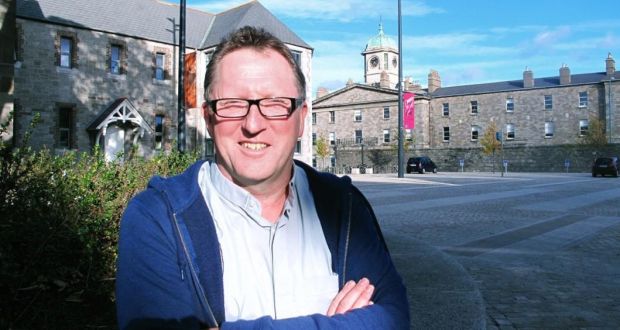Greater tolerance is being mistaken for a change in society’s values, writes Aron Hegarty
The role of religion in society has often been questioned in modern times with some even calling for it to be done away with altogether.
However, in times of crisis like what we are experiencing with the present coronavirus (Covid-19) pandemic, its importance now and in the future cannot be understated.
Fr Alan Hilliard of the Archbiocese of Dublin tells The Irish Catholic he feels neither religion, nor religious belief, is going away anytime soon.
“Religion is never going to die,” he says. “Some people would like it to go that way, but religious belief is never going to die.
“There are some who don’t want us around and they might think there’s a superiority in following an aggressive form of secularism.
“There is that intolerance in certain quarters, but in academic quarters all the sociologists, like Jürgen Habermas, recognised the importance of religion within society.
“Habermas said ‘it makes a difference whether we speak with one another or about one another’.
“One of the reasons we find it difficult to talk about faith these days is because we don’t know what we believe, and it’s only in the culture of encounter that we have to ‘dig deep’ into what we truly believe.”
Solidarity
Dublin priest Fr Hilliard says sociologists, such as Émile Durkheim, believe that the future lies in “cheerful solidarity” and religion, he feels, still has a part to play.
“If you were to go back into the whole work of sociology, a lot of people felt religion would disappear and secularism would take a hold of society, and that religion would be knocked back into the annals of history,” Fr Hilliard says.
“There was an intolerance or impatience as to why it [religion] was still hanging around and a lot of people wanted to see all forms of religion taken off the agenda.
“The whole debate is either secularism or religion, which is an unhealthy debate similar to the type that goes on in Europe between right-wing or left-wing; it’s either one or the other.”
On being asked if he thinks there could ever be complete acceptance of one another, Fr Hilliard replies: “I don’t think you can have a society where one is intolerant of the other.
“The whole purpose of the world is to be tolerant and pluralist nowadays. I think what people are trying to create in the world is a pluralist society where people value each other’s opinions.
“You would always have those who would be aggressive in wanting to make the world as they want it to be, but that’s not the future.”
He continues: “There’s always going to be a problem in society where people don’t get a fair ‘crack of the whip’ as you can see with all the debates going on about migration.
“There is that feeling that some are racist in their tenure, identifying people with certain qualities to let in, and in the way visas and passports are given out.”
Although Fr Hilliard says there will always be “racist constructs” in society, he says the intolerance shown by students is teaching us to be more “accepting”.
“I am very impressed with many of the young students through their sense of supporting and caring for one another as well as their tolerance for duplicity and fairness.”
Open-minded
Fr Hillard believes there is greater tolerance, as opposed to less racism, in society today and finds younger generations “inspiring” because they are more open-minded about difference in others.
“I find students have a very high tolerance and low rate of racism,” he says.
“I find them quite inspiring to be around. I find that they would be watching out for things like xenophobia and they would be very intolerant of any form of racism.
“That comes from the awareness they would have of sexuality, and the way its lived, and would be very supportive of one another and of differences in one another. I find that quite inspiring among them.”
He adds: “There is much greater tolerance among younger generations towards others because I think that’s more instinctively part of who they are and they are less afraid of difference.”
The role of religion in society, according to Fr Hilliard, is to bring us back to our moral access.
However, in a time where religious faith and belief are under constant scrutiny, he warns of the dawning of a challenging “new era” for religion.
“I think we are at the age of a Second Reformation,” he says. “The comparisons between the First Reformation with the invention of the printing press and this, with the evolution of the internet, is changing how people are seeing, hearing and doing things.
“What happened out of the First Reformation was a counter-Reformation and we have to find a way of a counter-reform. We need to find a way that we can hold on to the value and importance of religious faith and belief.”
Religion, admits Fr Hilliard, is in “decline” but he thinks the impact of Covid-19 may “recreate” religious faith and belief in people.
“The whole purpose of religion is to find a place in the society in which it dwells,” he says.
“Even the early Christian Church had to do that in Rome. We have occupied a space in cultured society for the last century in Ireland and its being burnt out, but that doesn’t mean we haven’t got a purpose; it means we have to find a new way of being.
“The challenge for the leadership of the Church is to find out how religious faith can exist in this new world in which we live.”


 Fr Alan Hilliard
Fr Alan Hilliard 